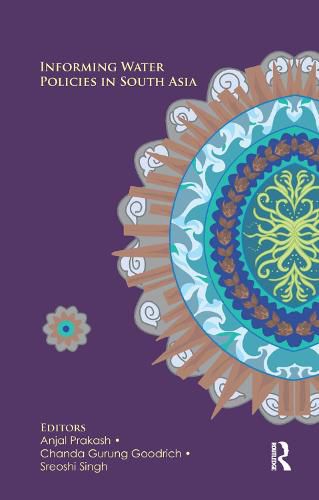Readings Newsletter
Become a Readings Member to make your shopping experience even easier.
Sign in or sign up for free!
You’re not far away from qualifying for FREE standard shipping within Australia
You’ve qualified for FREE standard shipping within Australia
The cart is loading…






This book analyzes water policies in South Asia from the perspective of Integrated Water Resources Management (IWRM). It seeks to address the problems of water scarcity, conflict and pollution resulting from the gross mismanagement and over-exploitation of this finite resource. Highlighting the need for IWRM in mitigating abuse and ensuring sustainable use, it discusses issues relating to groundwater management; inter-state water conflicts; peri-urban water use; local traditional water management practices; coordination between water users and uses; and water integration at the grassroots level.
With case studies from India, Bangladesh, Pakistan, and Nepal, the innovative, painstaking and transnational researches presented in the volume deal with questions of equity, gender, sustainability, and democratic governance in water policy interventions. It will interest researchers and students of development studies, environmental studies, natural resource management, water governance, and public administration, as also water sector professionals, policymakers, civil society activists and governmental and nongovernmental organizations.
$9.00 standard shipping within Australia
FREE standard shipping within Australia for orders over $100.00
Express & International shipping calculated at checkout
This book analyzes water policies in South Asia from the perspective of Integrated Water Resources Management (IWRM). It seeks to address the problems of water scarcity, conflict and pollution resulting from the gross mismanagement and over-exploitation of this finite resource. Highlighting the need for IWRM in mitigating abuse and ensuring sustainable use, it discusses issues relating to groundwater management; inter-state water conflicts; peri-urban water use; local traditional water management practices; coordination between water users and uses; and water integration at the grassroots level.
With case studies from India, Bangladesh, Pakistan, and Nepal, the innovative, painstaking and transnational researches presented in the volume deal with questions of equity, gender, sustainability, and democratic governance in water policy interventions. It will interest researchers and students of development studies, environmental studies, natural resource management, water governance, and public administration, as also water sector professionals, policymakers, civil society activists and governmental and nongovernmental organizations.